The Christian Association of Nigeria has called on the Federal Government to comply with the recent judgment of the ECOWAS Court of Justice, which declared certain provisions of Kano State’s Shariah law, particularly on blasphemy, incompatible with international human rights standards.
In a judgment delivered on Friday in a suit marked ECW/CCJ/APP/41/23, the regional court held that some sections of Kano State’s Penal and Sharia Penal Codes violated Nigeria’s obligations under global and regional human rights frameworks.
Specifically, the court declared Section 382(b), which prescribes the death penalty for insulting Prophet Muhammad, as “excessive and disproportionate in a democratic society.”
The regional court ordered the Nigerian government to repeal or amend the relevant provisions and similar laws to align with international legal standards.
However, the Kano State Government pushed back against the ruling, asserting its right to legislate in accordance with local religious and cultural values.
In a statement issued by the Commissioner for Information and Internal Affairs, Ibrahim Garba Waiya, the state government argued that Nigeria operates a federal system, where states retain autonomy over certain legal and moral matters.
Waiya said, “The Kano government’s defence is rooted in Nigeria’s federal system, where states retain the right to enact laws reflecting local social, moral, and religious contexts.
“The people of Kano have entrusted us with the responsibility to maintain peace and protect their religious values.
These laws are central to that mission, and they will remain firmly in place.”
But in an interview with The on Sunday, the Chairman of CAN in the 19 northern states and Abuja, Rev. John Hayab, stressed that Nigeria, as a signatory to ECOWAS treaties and with the President currently chairing the regional bloc, must honour the court’s decision.
He warned against selective adherence to international and national laws, stating that no state has the constitutional authority to override Nigeria’s collective legal commitments.
Hayab said, “If my memory does not fail me, our President is the Chairman of the ECOWAS. Are we saying that we also do not want to continue to remain in ECOWAS? You see, when we go into this regional agreement and treaties and fellowship, we abide by it. It’s just like the United Nations Charter.
“We are part of it, we should abide by it. When we now start telling states that are coming out to say this, they are instead telling Nigerians that they don’t belong to the federation. There’s no state that is not part of the federation, and there’s no state that will be higher than the federation.
“Today we are talking about Sharia law; tomorrow we may talk about something else. So, we shouldn’t be selective in the one we accept and the one we refuse.”
Hayab stated that religious laws—whether Christian or Muslim—must not contradict the Constitution and international agreements.
He added that he would gladly support the abolishment of any Christian laws that is against the collective laws of the land.
Hayab said, “And simply what the ECOWAS court is trying to say is, look, there are laws guiding Nigerians and those laws do not empower religion to some extent, because there shall be no state religion, according to Nigerian law. So states must learn to obey. But when states start coming to say ECOWAS should not poke-nose, or ECOWAS should not get herself involved, who, in the first place, is sponsoring and financing the ECOWAS Court? Nigerian inclusive.
“So I think sometimes when we come out with these sentiments and emotions, that we are attaching them to issues of religion, it’s not clear. I, as a Christian, if there’s any law that promotes or supports Christianity, that jeopardises the agreement of our collective laws and if a court sets it aside, I cannot start getting myself in trouble and making such kind of pronouncement unless I no longer say I belong to Nigeria.”
The cleric urged both federal and state authorities to act in the national interest, warning that placing religious sentiments above constitutional order could undermine Nigeria’s unity.
He said, “We must learn to obey our country. We must learn to promote our country. We must learn to defend our country. We were first Nigerian before we became anything we thought we were. And I think we need to begin to promote this sense of patriotism so that people don’t begin to think their religion is more than the whole country, or their religion is more than the whole country, or their name is more than the whole country. No, the country is the most important thing.
“Let’s be careful with the things we are doing unless we don’t want this togetherness. But I believe that the strength of Nigeria is in our unity and togetherness. “
Similarly, a rights advocacy group, Rivers in the Desert Nigeria, called on the Kano State Government to immediately repeal the controversial blasphemy law in line with the ECOWAS Court verdict.
“It is unreasonable for any state to enforce religious laws that undermine the Constitution and freedom in a country that thrives on its pluralism,” the group’s Executive Director, Adekunle James, said in a statement on Monday.
RID Nigeria also called on the Federal Government to fulfill its duty and enforce the ECOWAS ruling.
“We urge Kano State to show leadership by repealing these provisions and replacing them with policies that promote peaceful coexistence, as seen in Morocco and other majority-Muslim
nations, while also focusing on improving the quality of lives of its people and bringing development to the state, like the Muslim-majority United Arab Emirate,” James stated.

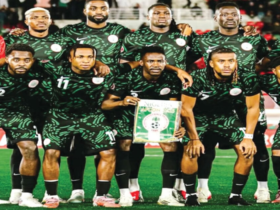


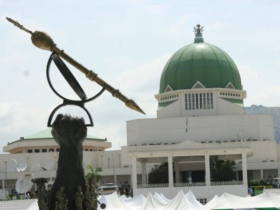

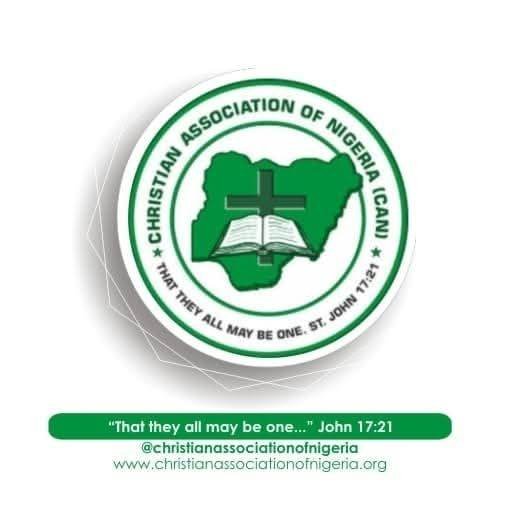

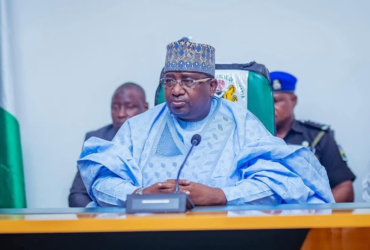

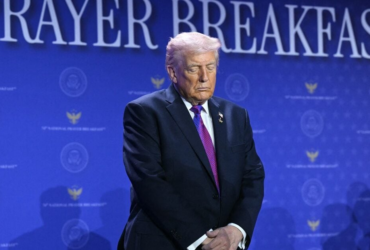
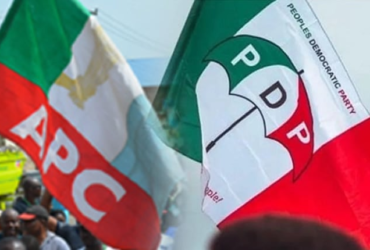

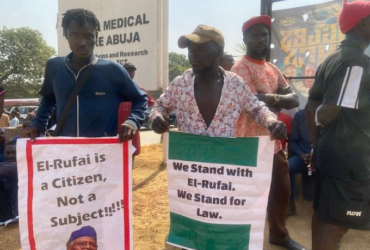
Leave a Reply